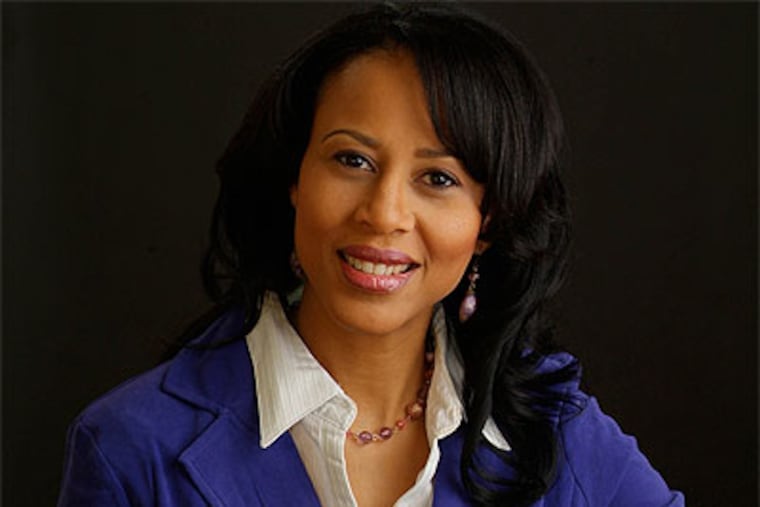Stretching your retirement dollars
FOR THE SECOND time in two weeks, educators have joked that I was scaring them about retiring. In the end, these readers felt that they would be OK, but the steady news of retirement woes have them thinking of plans A, B and C.

FOR THE SECOND time in two weeks, educators have joked that I was scaring them about retiring.
In the end, these readers felt that they would be OK, but the steady news of retirement woes have them thinking of plans A, B and C.
I'm a long way from retirement. But as time passes, I've become more aware of the challenges of leaving the workforce and trying to live off my savings. It's hard to stay optimistic, even if you've done well for yourself, when report after report lays out facts that make getting older seem forbidden.
A new Kaiser Family Foundation analysis of the Census Bureau's poverty estimates for seniors is frightening. Nationally, 9 percent of people 65 and older live in poverty. But when the poverty measure adds in other supplemental information, such as out-of-pocket medical costs or the high costs of housing, 15 percent of seniors are living in poverty.
In examining the data state-by-state, the foundation reported that "the share of seniors living in poverty is higher in every state under the supplemental measure than under the official measure." And it's at least twice as high in 12 states: California, Colorado, Connecticut, Hawaii, Massachusetts, Maryland, Minnesota, New Hampshire, New Jersey, Nevada, Wisconsin and Wyoming. The District of Columbia has the highest rate - about one in four.
Then there is a report from MoneyRates.com that won't come as news to savers and retirees. The company put into context the pitiful interest rates people are getting on their deposited cash.
In responding to the Great Recession, the Federal Reserve instituted polices that have kept borrowing rates low. But the ultralow interest-rate environment has been crushing to customers with certificates of deposit, money-market funds or savings accounts.
The Fed policy cost depositors more than $120 billion in purchasing power in the 12-month period ending in March, according to MoneyRates.com, a website that helps users find the highest rates on their savings. Over the past four years, the lost buying power totaled $635 billion.
Using the $8.8 trillion on deposit in U.S. banks at the end of the first quarter in 2012, MoneyRates.com calculated the interest that would be earned on that amount for the year using monthly average money-market rates from the Federal Deposit Insurance Corp. The value of the deposits, plus that interest, was adjusted for inflation to come up with the total change in purchasing power.
Because people aren't earning enough interest to match or stay ahead of inflation, they are losing buying power. This means that when prices rise, they can't buy the same goods with their saved cash.
"The Fed's monetary policy is not a cost-free tactic," said Richard Barrington, a chartered financial analyst and senior financial analyst at MoneyRates.com. "Savers are paying for trying to jump-start the economy. The irony is we had a financial crisis that was caused by too much borrowing. Borrowers committed the crime, and the savers are doing the time."
So, what now?
Until financial institutions begin to pay more for deposits, you need to be extra diligent in shopping around for the best rates. "They are low but not all equally low," Barrington said. "Look for the best of a bad situation in terms of rates."
Try online banks, which have engaged in a price war over the past six months trying to woo depositors, he said. But first double-check that the institution is FDIC-insured.
Don't lock into long-term CDs. It used to be that you could get a decent rate on a five-year certificate. Not anymore. As of Monday, the FDIC was showing the national average rate for a 60-month CD as 0.74 percent. That's only marginally better than the 0.21 percent rate for a 12-month CD. "It's a good time to keep your CDs fairly short," Barrington said. By buying shorter-term CDs, you can reinvest your money should rates rise.
Finally, don't play it all in the stock market. You still need to keep some of your money in cash. Today the market is doing well, but we all know that can quickly change. It's important to invest, which historically - over time - does deliver better returns than just parking your money in a bank account. But don't gamble too much.
"What scares me is the guy who has been very conservative and finally gets frustrated by low interest rates and he takes the plunge into the market at the wrong time," Barrington said. "Don't panic into stocks."
So there you have it - another series of gloomy reports. Just call me Mrs. Doom.